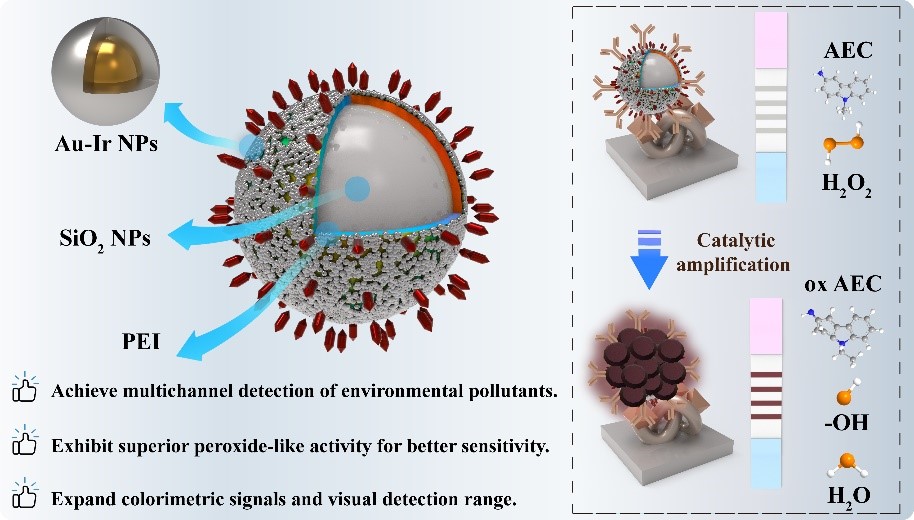
Recently, a research group led by Dr. WANG Shu from the Hefei Institutes of Physical Science of the Chinese Academy of Sciences, successfully developed an innovative immunochromatographic technique based on silicon-based bimetallic nanozymes (Si@Au/Ir), achieving high-sensitivity, multi-functional, and multi-channel detection of environmental pollutants.
The research results were published in the journal Chemical Engineering Journal.
Lateral flow immunoassay (LFA) is a popular method for rapid on-site detection of harmful substances, offering portable and accurate screening. However, traditional LFA relies on colorimetric signals, which limit its detection speed and sensitivity. As a result, researchers have been working on new signal tags to improve performance.
In this study, by employing precise electrostatic adsorption and self-assembly techniques, the researchers successfully integrated gold/iridium (Au/Ir) bimetallic nanoparticles onto the surface of silicon spheres, creating Si@Au/Ir nanozyme signal tags with uniform distribution, excellent stability, and exceptional catalytic efficiency. The team also coupled target-specific antibodies to the surface of the signal tags via amidation reactions, achieving a high level of specificity in binding, akin to a "lock and key" mechanism.
The resulting detection platform enables on-site, rapid, and simultaneous detection of multiple environmental hazards, including cadmium ions (Cd2+), clenbuterol hydrochloride (CLE), and gentamicin (GM).
“Our method offers a more efficient solution for pollutant detection,” explained Prf. WANG Shu, “playing a key role in environmental and food safety.”

Bimetallic composite nanoenzyme tags (Si@Au/Ir) and the construction of three highly sensitive combined test strips for environmental hazard factor detection. (Image by ZHENG Shuai)